Life
-
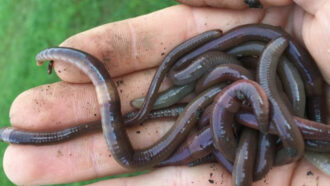 Environment
EnvironmentJumping ‘snake worms’ are invading U.S. forests
These bad-news invaders are spreading across the United States. As they turn forest debris into bare ground, soils and ecosystems are changing.
By Megan Sever -
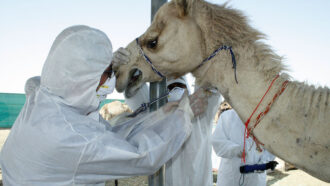 Health & Medicine
Health & MedicineWhen physicians and veterinarians team up, all species benefit
When doctors for people and those for animals share their expertise, they can discover new ways to take better medical care of all species.
By Liz Devitt -
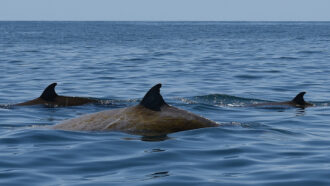 Animals
AnimalsA whale’s nearly four-hour-long dive sets a new record
Cuvier’s beaked whales may rely on large stores of oxygen, a slow metabolism and the ability to tolerate lactic acid to go for hours without surfacing for air.
-
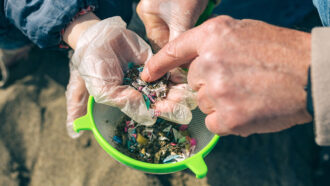 Environment
EnvironmentPolluting microplastics harm both animals and ecosystems
Researchers are beginning to uncover the real-world impacts of polluting microplastic bits on animals and the ecosystems they inhabit.
-
 Health & Medicine
Health & MedicineMany student athletes face risk of concussions that heal slowly
High school girls and those with a history of concussions appear to take longest to recover.
-
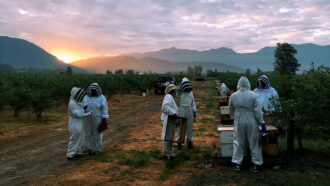 Animals
AnimalsLearning what stresses queen bees could save their hives
Beehives often die off after the queen gets too stressed to make enough babies. New tests could identify what stressed her — and point to solutions.
-
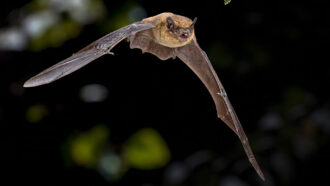 Animals
AnimalsHere’s what bats ‘see’ when they explore the world with sound
High-speed cameras, fancy microphones and slick software are helping scientists get the best look yet at what bats perceive through echolocation.
-
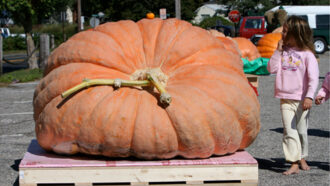 Plants
PlantsHere’s how giant pumpkins get so big
Cinderella took a ride in a pumpkin coach. Though real pumpkins do get big enough, here’s why their ride would be uncomfortable at best.
-
 Plants
PlantsExplainer: How photosynthesis works
Plants can take in light, water and carbon dioxide, and send out sugar and oxygen. Here’s how it works.
-
 Health & Medicine
Health & MedicineScientists Say: Narcotic
Scientists refer to a narcotic as a drug that stops pain, but the word can be used in other ways as well.
-
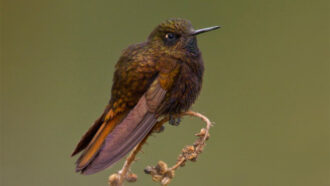 Life
LifeOne hummingbird survives cold nights by nearly freezing stiff
To survive a freezing night, hummingbirds in the Andes mountains go very still, slow their heart rate and let their body temperature plummet.
-
 Genetics
GeneticsGene editing can alter body fat and may fight diabetes
Researchers have long dreamed of using brown fat to fight obesity and diabetes. Work in animals shows they’re closing in on achieving that dream.